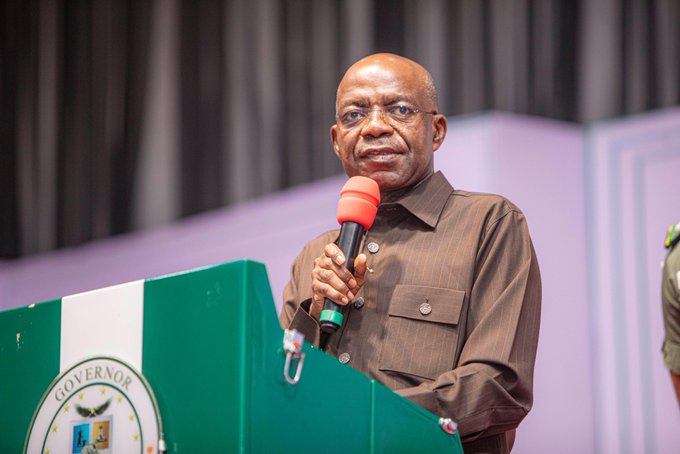Abia State Governor, Alex Otti, has announced a groundbreaking initiative to tackle the persistent issue of teacher shortages in the state’s rural areas.
The Governor approved a special compensation package aimed at incentivizing teachers to serve in these hard-to-reach areas.
Governor Otti made this announcement during his monthly media chat at the Government House in Umuahia on Friday night, explaining that this new plan would address the challenge of staffing in remote public schools.
“We have put in place a discriminatory compensation package to encourage teachers to serve in these underserved areas,” Otti said. “We believe this will make it easier to attract and retain quality educators in rural parts of Abia.”
The Governor’s comments come after years of persistent difficulties in staffing schools located in remote regions, where many teachers are reluctant to work due to poor infrastructure, limited resources, and difficult living conditions.
Otti explained that the initiative would involve offering teachers tailored benefits to encourage them to take up assignments in rural schools. This plan is expected to bridge the staffing gaps and provide a better learning environment for students in these areas.
“My understanding is that people received the initiative very well,” Otti added. “We expect to see positive results in the coming weeks, and we are committed to ensuring that no school in Abia is understaffed.”
The initiative aims to ensure that every child in Abia State, especially those in rural areas, has access to quality education. By offering more attractive benefits, the state hopes to tackle the chronic shortage of teachers in these areas, thereby improving the standard of education across the state.
The Governor also highlighted that the education sector has seen significant improvements in the past months. One of the major reforms was the separation of basic and secondary education management from tertiary education, a move aimed at ensuring better oversight and improved educational quality at all levels.
In addition to education reforms, Governor Otti shared updates on the state’s infrastructure development. He revealed that several road projects have been completed and inaugurated, including key roads such as the Onuimo to Abia Tower dualisation and the reconstruction of the Ntigha-Mbawsi-Umuala Road and Umuopara Ring Road.
“We are making steady progress on road projects, and more will be commissioned before the end of the year,” Otti said.
Another significant development is the transformation of the proposed Abia Airport project. Otti revealed that through collaboration between the state and federal governments, the project has been upgraded from an airstrip to a full-fledged airport.
The state government is set to provide the necessary land and logistics for the project, which will play a vital role in improving transportation and economic activities in the region.
On the state’s budget, Otti disclosed that the 2025 proposed budget stands at N750.2 billion. He emphasized that 82 percent of the budget would be allocated to capital expenditure, with a focus on infrastructure, while 18 percent would go to recurrent expenditure. Of particular importance, Otti revealed that 20 percent of the budget would be dedicated to education, and 15 percent to health.
Governor Otti further shared his government’s commitment to improving healthcare in the state. He noted that 200 Primary Healthcare Centers (PHCs) were being rehabilitated, with plans to ensure that each of the state’s 17 local government areas has at least one functional PHC.
“We are determined to ensure that every ward in Abia has access to quality healthcare, and we are making significant strides in this direction,” Otti said. “Our goal is to make healthcare accessible to all, especially in the rural areas.”

